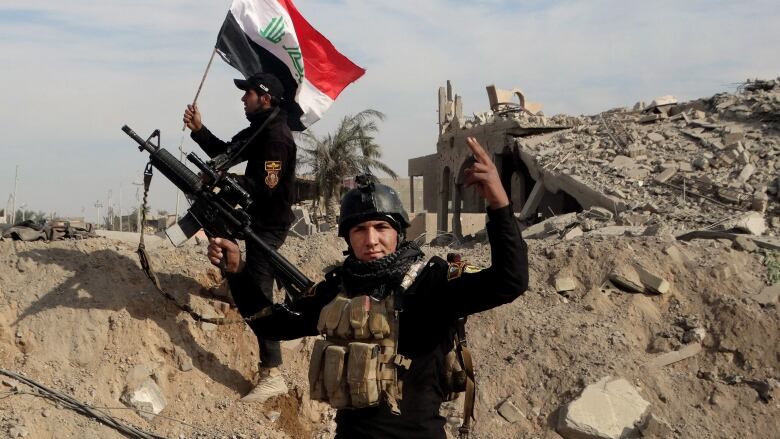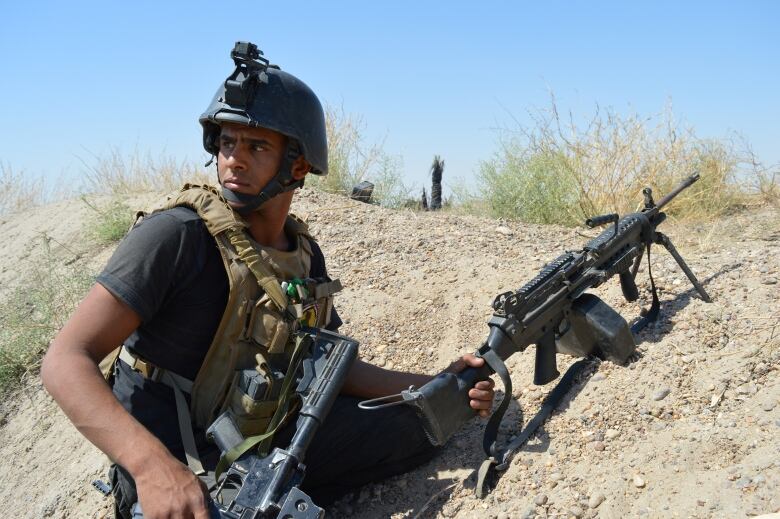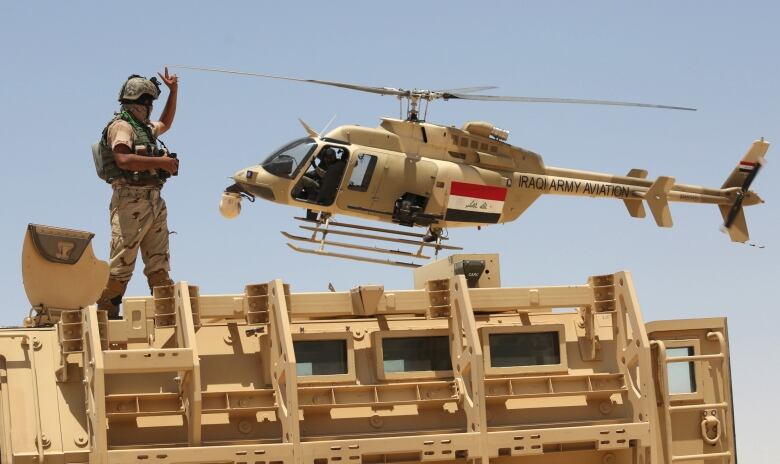Is ISIS preparing for 'Plan B' as losses mount?
Iraqi forces have now set their sights on retaking Fallujah

Withrecruitmentdown, itsfinances squeezed and having lost considerable ground, ISIS just may be in the throes of near defeat, according tosomeanalysts.
But whether the Islamic State ison its last legsor isstill capable of waging an indefinitecampaign, attention is now being focussed on just what happens on the so-called "dayafter."
- Iraq stalls fight with ISIS over Fallujah 'to protect civilians'
- ISIS fighting near Fallujah creates 'dire situation'
"The West should have no illusion that the Islamic State will simply slump into defeat," wroteBrian Michael Jenkins and Colin Clarke, both of the Rand Corporation, whichspecializes in insurgency and transnational terrorism.
"Instead, it must focus on thwarting the group's Plan B."
That the group has formulated such a contingency plan is still a subject of speculation, and expertopinions differ onhow close it is to actual defeat.
"After maybe years of really stunning success, I think the IslamicState has run into trouble," saidAustin Long, assistantprofessor of international and public affairs at Columbia University and a formeradviser to the multinational force in Iraq.

The group has suffered some pretty stunning losses, asIraqi forces haverecaptured formerly ISIS-held territory such asRamadi andthe town of Hit.Now the Iraqi forces have theirsights seton retaking Fallujah,the first major Iraqicity that fell to the group in 2014.
Recruitment for ISISmay not have dried up, but it's certainly down, Long said. Fighter strength in some locations is now estimated in the hundreds, when previously it was in the thousands. Some of this is a result of other countries cracking down on their own citizens attempting to join.
Revenue sources havecome under pressure and there has been a concerted effort to reduce its abilityto sell oil. Meanwhile, the aerial bombardment by the U.S.-led anti-ISIS coalition has also taken its toll.
"The bottom line is,I think they're weaker," said Long."I thinkyou'reseeing them contract, I don'tthink thegroupis in danger ofcompletecollapse."
Wayne White,who worked for several decades as an Iraq analyst for the U.S. government,is more optimistic that ISIS could soon be defeated andbelievesthe anti-ISIS forces have made "astounding gains" and thatthegroup's string of losses and ceding of territoryshows how it's being chipped away onvarious fronts.
"Even when itwas doing well, I could see theyhad a strategic military problem. Its very conquests had laiddownthe seed to its ultimatedemiseor severe losses ofterritory...becauseofthe vast perimeter that it had to defend.
'Some pretty severe defeats'
"I would not have been thisoptimisticjust twoor threemonths agobutwe have seen themsuffersome pretty severe defeats since the late winter and early spring period."
White credits someof that successto the involvement of theIraqi Shiamilitias, which are more effective thanthe regular army, inpart, because of their hatred of Sunni Arabs.
But their involvement, he said, comes with its own problems andraises serious questions about the aftermath of an ISIS defeat and whether theoccupying troops might commit their ownatrocities.
"We've seenthemclear outvillagesof ISISand then proclaim the villages andtowns nowShia," White said. "This is arealconcern.Right now they arefightingin areas that are purely SunniAraband far from Shiaareas butthere'sstilla concern about the looting,themistreatment, thebeatingof prisoners and this kind ofmisbehaviour."
The 'day after'
"Whenpeoplethink of the day after,peopleoften talk ingrandterms about when ISISis totallyeliminated. Evenbeforethat, you have the issue of as they are eliminated what isgoingon in these areas."
And with defeat, says White,comes more incentive for ISIS toexfiltratethefight elsewhere or to pull off morelarge-scale attacks.
Long agreed that ISIS may not be viewed in favourable terms in some of these occupied areas, but it could be seen as the lesser of two evils ifthe Iraqi government comes and, essentially, conducts ethnic cleansing.

And having lost large swaths of territory, ISIScould switchback to being a guerrillaforce that hides in the wilderness and launches opportunistic attacks, Longsaid.Healsoquestioned whether forces will do what's necessary to ensure the group is totally destroyed.
"My fear is no," he said.
With a lack of co-ordination among some of the fightinggroups, and with the Islamic State still controlling some key territory, Clarke seesless potential for an imminent end to ISIS,sayinghe doesn't think "we're anywhere near to defeating this group."
'Long, drawn out'
"I think this is going to be a long, drawn out, very bloody conflict with fits and starts," he said.
In their written piece, Jenkins and Clarke saidAbu Bakr al-Baghdadi, the leader of the Islamic State, will never surrender, meaning that when conventional defeat does come, it could go underground or its leadership could flee to a place like Libya.
But it may also try to escalate, they wrote,or launch a campaign of "terrorism"in Baghdad, consider a major assault on Mecca or Riyadhor commitaBrussels-style of attack.
They would launch such actions"just to proveto their followers that they are a force to be reckoned with," Clarke said.
With files from Reuters












_(720p).jpg)


 OFFICIAL HD MUSIC VIDEO.jpg)
.jpg)



























































































